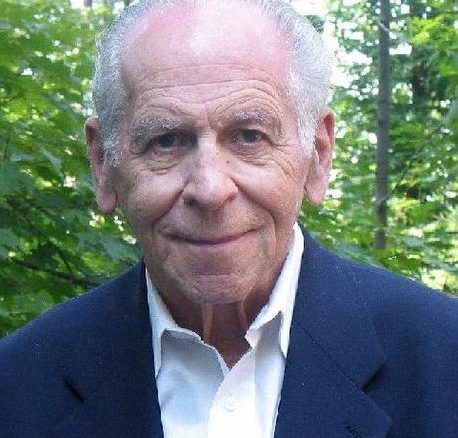“The issue comes down to whether the individual is viewed as a private person or as public property: the former has no obligation to the community to be or stay healthy; the latter does.”
“Virtually everything the Founding Fathers sought to achieve by separating church and state has been undone by the apostles of modern medicine, whose zeal for creating a therapeutic state has remained unopposed by politicians, priests, professionals, journalists, civil libertarians, and the public.”
–Thomas Szasz
Many people have legitimate complaints against the Food and Drug Administration. For example, during its long history, the FDA has delayed the marketing of badly needed drugs and medical devices, leading to unnecessary pain and death. Excessive bureaucratic requirements for testing have made drugs more expensive than they would have been otherwise. And, as I’ve detailed elsewhere, its regulation of tobacco and nicotine interferes with people’s enjoyment of those products, not to mention their rights. (At least one member of the Federal Communications Commission wants a piece of that action.)
I want to suggest, however, such isolated complaints fail to go to the heart of the matter. The problem is not this or that regulation. Nor is the problem even the FDA itself. The root problem is the government’s claim to jurisdiction over so-called “public health.” In the United States, once Congress assumed this power and created myriad regulatory agencies to exercise it, the door was opened to the kinds of mischief that Thomas Szasz (1920-2012) placed under the label “the Therapeutic State.” All manner of interference with individual freedom can be and has been presented in the name of safeguarding public health. It’s a Pandora’s box.
The ultimate question is: who owns you? The answer will determine who is to be in charge of health.
The courts have routinely affirmed that the government has a “substantial interest” in the “health, safety, and welfare of its citizens.” In other words, citizens are public property. It’s time that this currently uncontroversial premise was questioned.
The modern state’s “substantial interest” in the physical and mental welfare of its citizens is an echo of the pre-liberal era, when the sovereign was seen in part as the father and custodian of the physical and spiritual welfare of his subjects. Paternalism served the interests of the sovereign, of course: he needed healthy taxpayers and soldiers. But the relationship was bigger than that.
The liberal revolutions of the 18th century did not fully push aside that model of governance, and many vestiges of the old regime have remained. Whatever the rationalization, whatever the ostensible basis of authority, the state was (and is) about taboos and social control. Of course, the form changed — church and state have been more or less separated — but in many ways the substance has been unchanged. The power of state-related clergymen was succeeded by the power of state-related medical men (including psychiatrists) and putative scientists. As the theological state receded, the therapeutic state advanced. Illness (including so-called mental illness) came to play the role in public policy that sin once played. Health stands in public life where salvation once stood. Treatment is the modern way of redemption. The burning of witches was succeeded by, for example, the confinement in madhouses of people who had committed no crimes. Electroshock and lobotomy replaced the rack and thumbscrew. The pattern repeated itself in the United States; state governments involved themselves in public health from an early date, followed by the federal government. Drug dealers and users became the modern scapegoats who had to be cast out (imprisoned) to protect the public’s health, although drugs entered people’s bodies by volitional acts. (On the resemblance between the theological and therapeutic states, see the works of Thomas Szasz, a psychiatrist who made a career demonstrating the unappreciated parallels. Links to many articles are here.)
In the modern age, Szasz wrote, “To resolve human problems [e.g., “bad habits”], all we need to do is define them as the symptoms of diseases and, presto, they become maladies remediable by medical measures” — more precisely, political-medical measures. Doctors, having been deputized by the state, wield power they could have not obtained otherwise. (The head of the FDA, Scott Gottlieb, is a physician.) Thus we have (to use another phrase from Szasz, “the medicalization of everyday life.” For example, any disapproved behavior that anyone engages in repeatedly is branded an “addiction,” which is in turn defined as a disease, as though calling behavior, which has reasons not causes, a disease were not a category mistake. Never mind that metaphorical, or mythical, diseases are not real diseases. (Are substances or people habit-forming? To say that an ascribed disease is a myth is not to deny the behavior or even to deny that the behavior may a problem for either the actor or the people around him. As the philosopher Gilbert Ryle wrote, “A myth is, of course, not a fairy story. It is the presentation of facts belonging to one category in the idioms belonging to another. To explode a myth is accordingly not to deny the facts but to re-allocate them.”)
It is in this light that we should view the FDA and other government medical and scientific entities. They are part of a massive apparatus of social control, making their personnel agents of social control, not truth-seeking. Whether the FDA, for example, is a friend of industry or an adversary (at different times it’s been both), the public is ill-served precisely because the right of individual self-determination in a free market, including tort- and fraud-redress procedures, is undermined by prohibitions and restrictions. It is also ill-served by the monopolistic effects of centralized political authority over science and medicine. (On the FDA’s growth, see this.) Free competition is the universal solvent because facts emerge through rivalrous activity, both economic and intellectual.
Many people don’t see things that way, of course, and so government has increasingly controlled people’s choices with respect to health and science. On the basis of the fiction that the free market has failed in these realms — when has it actually been tried? — politicians, bureaucrats, and deputized practitioners have gained power. A gain in political power, Albert Jay Nock taught us, necessarily means a loss in “social power,” that is, self-control by individuals and their voluntary associations (including families). If self-control is denied in one area of life, we should not be surprised to see it fade from other areas of life. Today, the battle cry is “Medicare for all!” But if “the public” (the state) is to pay for everyone’s medical care collectively, won’t the public’s putative representatives want to impose restrictions on individuals’ risky behavior if for no other reason than to minimize the hit to the government’s budget? What then becomes of what’s left of individual freedom?
The coercion exercised by the government-medical complex is routinely defended as being for people’s own good: in this view, they are compelled to do only what they really wish to do but cannot because of addiction, mental illness, etc. To Szasz, this is “the authoritarian, religious-paternalistic outlook on life,” to which he responded: “I maintain that the only means we possess for ascertaining that a man wants to [for example] stop smoking more than he wants to enjoy smoking is by observing whether he stops or continues to smoke. Moreover, it is irresponsible for moral theorists to ignore that coercive sanctions aimed at protecting people from themselves are not only unenforceable but create black markets and horrifying legal abuse.”
Szasz added: “The issue comes down to whether the individual is viewed as a private person or as public property: the former has no obligation to the community to be or stay healthy; the latter does.”
We know how the “public health” lobby views the matter. When it panics over how much smokers “cost the economy” in lost productivity (through sick days and shorter lives), the lobby is proclaiming that Americans are indeed public property. How dare they enjoy themselves and risk their health at the expense of the economy, the people, the nation? (The Nazis and Bolsheviks followed this idea all the way.) In contrast, quaint classical liberals believe “the economy” — that is, the institutional framework for free exchange — exists to serve people. When the “public health” lobby advocates coercion for a person’s own good, in reality it does not speak of treatment and cure but of assault and battery — and perhaps torture. A medical relationship without consent is like a sexual relationship without consent. But few people understand that.
Perhaps sensing the flaw in the case for coercion based on preventing harm to self, much medical coercion is offered in the name of protecting others. There is a grain of truth here, of course. People can carry deadly communicable diseases. (Whether the state’s centralized bureaucracy is needed or competent to deal with this is another question.) But as the public-choice thinkers point out, state officials won’t be satisfied with such a narrow mission as protecting people from such diseases. Public-health jobs will tend to attract people dedicated to reforming other people’s “vices.” Inevitably, they will push the boundaries to acquire more power, money, staff, and prestige — all dedicated to breaking our “bad habits.” The alleged threat from second-hand smoke is in no way analogous to the immediate threat from a communicable disease. The former can easily be dealt with through contract and other voluntary arrangements but that doesn’t stop the public-health zealots from working to outlaw smoking in bars, restaurants, and even tobacco shops.

Mark Twain’s Huck Finn
But what about the children? In a free society, families are responsible for raising children to be autonomous adults. Of course, this does not always happen, part of the reason being the government’s own obstacles, such as rotten schools for low-income kids. At any rate, history makes clear that government crusades, say, to keep adolescents from doing “adult” things — such as drinking, smoking, and now vaping — only add to their allure and have horrendous unintended consequences. Fruit is harder to resist when it is forbidden, and forbidden fruit brings black markets with all their attendant harms. Meanwhile, adults find themselves harassed — in the name of protecting the children — as they go about enjoying themselves.
Would life be perfect if “public health” were left to free and consenting adults in the free market? No, of course not. But a real-world free society should not be compared to an unreal and unrealizable utopia of all-wise, all-knowing, and all-good “public servants” who have only your health and welfare in mind. Rather, it should be compared to the real world of fallible, morally flawed, egotistical, self-serving, and centralized politicians and bureaucrats whose worldview is one where they give orders and you obey. Markets — which is to say, people in both profit-seeking and non-profit capacities — are capable of producing reliable consumer information and guidance, not to mention certifying the quality of products. They do it every day. Governments, after all, are comprised of nothing but human beings (facing perverse institutional incentives stemming from the state).
“Those who would give up essential liberty,” Benjamin Franklin might have said, “to purchase a little temporary health, deserve neither liberty nor health.”
TGIF — The Goal Is Freedom — appears Fridays.

































